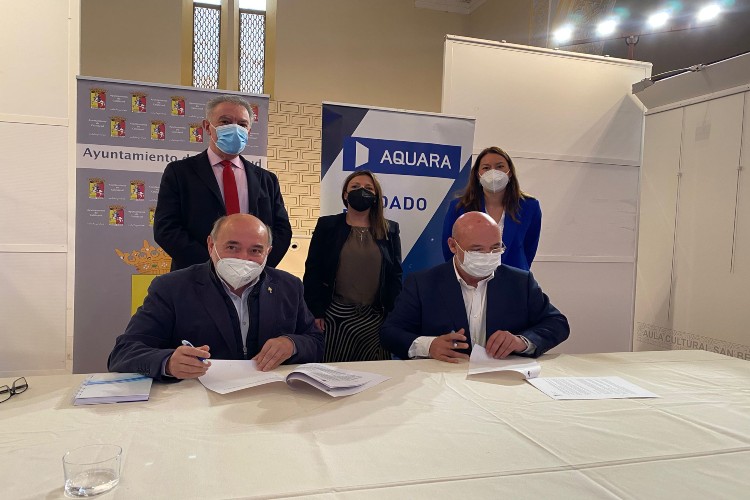First agreement of the table of the Social Pact of Calatayud
The City Council of Calatayud and Aquara have convened the first dialogue table in which it has been agreed to carry out an accompaniment task for the beneficiaries of the social fund to help them get out of vulnerability

The Calatayud City Council and the Municipal Water Service managed by Aquara have convened the entities that make up the Social Pact for Calatayud, to celebrate their first work table. The mayor of Calatayud, José Manuel Aranda, and the management team of Aquara have chaired the meeting.
One of the first fruits of this meeting has been to give a greater scope to the social fund of the city's water service that Aquara and the City Council have recently signed. “It is about not staying only in a benefit for people in vulnerable situations; the objective is to offer them support in terms of training, employment and social assistance that will help them get out of the situation in which they are living”, says María Pilar Lasheras, head of the Aquara Service in Calatayud.
To do this, the members of the table have shared the different projects on employability that are developed by public and private initiative in the town. The commitment of the members of the Social Pact is to promote actions that invest in training and allow the development of talent to combat job insecurity.
"We appreciate the commitment of Aquara and all the entities that have joined this exciting project, in which we are proposing solutions to reduce inequality, develop the capacities of citizens and work for a greener future in Calatayud", explains the Mayor.
Cáritas, Red Cross, IES Leonardo de Chabacier, IES Emilio Jimeno, Zaragoza Chamber of Commerce and INAEM are the entities that make up this group and represent NGOs, social entities, training centers and organizations that work for inclusion and job creation. .
The Social Pact for Calatayud is a space promoted by Aquara to contribute to the development of sectors that generate confidence and employment in the green economy. The Social Pact is based on three axes: solidarity, so as not to leave anyone behind; quality employment, investing in training and talent; and green reconstruction, aligned with EU actions such as European Funds or the European Green Deal.
"We are convinced that companies are part of the solution and we can contribute to solidarity projects that create opportunities through public-private collaboration," says Laura de Vega, Director of Sustainable Development at Aquara.
